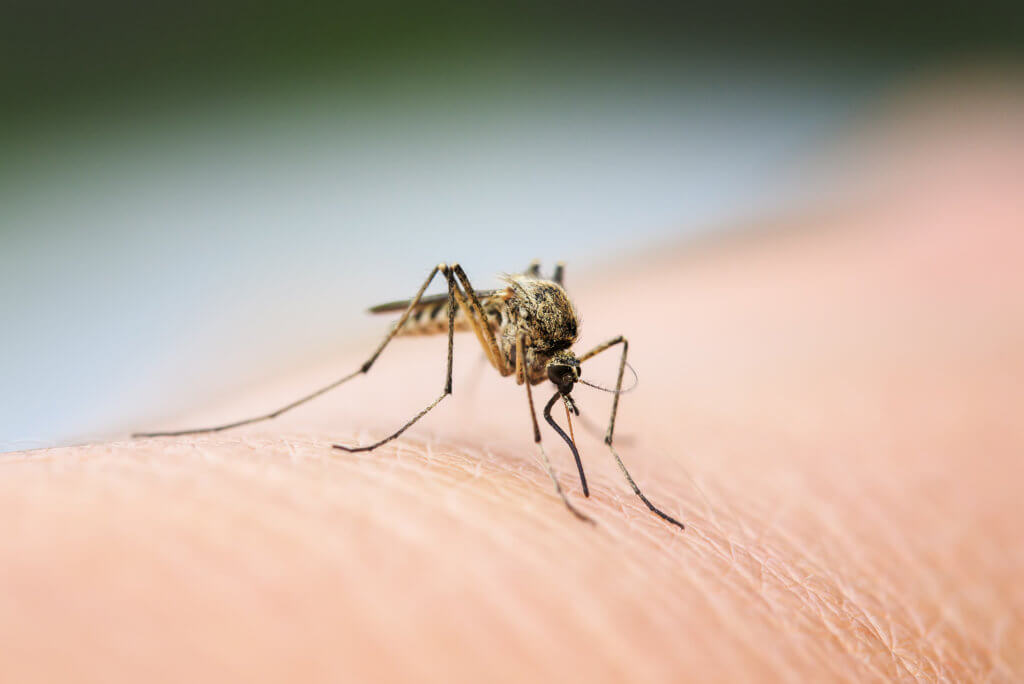COLUMBUS, Ohio — As if you haven’t had enough of these bloodsuckers, mosquito season might be here to stay. Mosquitoes are waking up sooner from their winter slumber, which could be a major health issue if they’re carrying diseases like the West Nile virus. The reason for the early wake-up call? Society’s nonstop use of artificial light.
A new study by The Ohio State University researchers finds the lights we use every day in our homes and cities are disrupting mosquito behavior. The changes suggest mosquitoes may not survive to winter if they’re still active, but it also implies that they’re biting much longer into the fall.
“We see the highest levels of West Nile virus transmission in the late summer and early fall in Ohio. If you have mosquitoes postponing or delaying diapause and continuing to be active longer in the year, that’s at a time when the mosquitoes are most likely to be infected with West Nile virus and people could be at greatest risk of contracting it,” says Megan Meuti, a senior author of the study and an assistant professor of entomology at Ohio State, in a university release.
Northern house mosquitoes typically undergo a period of dormancy where they shelter themselves from the frigid cold. They’ll gather in caves, drainage pipes, sheds, and any other semi-protected areas. To make sure they survive the winter, mosquitoes convert sugary sources, such as plant nectar, into fat. Females then begin foraging for blood to stimulate egg production. While looking for their meal, some suckers become infected with the West Nile virus when feeding on infected birds. They can later spread the virus to other people, horses, and other mammals.
READ: Best Mosquito Repellent: Top 5 Products Most Recommended By Experts
Previous research on mosquitoes found different expressions of genes related to their biological clock when sleeping in the winter and being active in the warmer seasons. The findings suggested that the length of the day influenced when mosquitoes would become dormant. Recently, another study showed that female mosquitoes exposed to dim light at night became more active reproductively and less dormant. Light pollution also affected their slumber even on shorter days.

In the current study, the researchers examined the daily activity and build-up of nutrients by mosquitoes in two conditions. The first scenario mimicked the insects’ active season while the second simulated shorter days that would normally trigger dormancy. The team either exposed or did not expose the insects to artificial light at night in both simulations.
Results show that having artificial nightlights on affected the activity and behavior of mosquitoes. The light triggered mosquitoes to hold back on the number of water-soluble carbohydrates produced in the body — sugars that are an important food source in the winter. Artificial light also changed the storage of glycogen. Normally, non-dormant mosquitoes store a lot of glycogen in the body while those in dormancy do not. However, light pollution caused long-day mosquitoes do not accumulate as much glycogen while short-day mosquitoes increased their glycogen supply.
The findings suggest mosquitoes stay more active and avoid winter dormancy when exposed to light pollution. According to the authors, one explanation behind the change in behavior is that light messes with their biological clock.
“This could be bad for mammals in the short term because mosquitoes are potentially biting us later in the season, but it could also be bad for mosquitoes in the long term because they might be failing to fully engage in preparatory activities they need to survive the winter during diapause, and that might reduce their survival rate,” says study author Matthew Wolkoff.
The study is published in the journal Insects.

